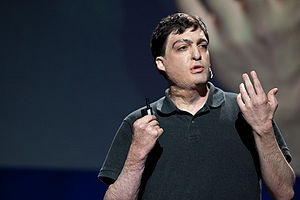I just completed by 6th book of the year (I know, I should be at 14 by now to hit my goal, so I’ve got to get moving), “Predictably Irrational” by Dan Ariely.
This book is chock full of examples from experiments Dan and his colleagues performed to illustrate how all of us make irrational decisions. It’s titled “predictably” irrational since Ariely is able to draw conclusions from these experiments and confirm them with follow-on studies (typically performed in university settings).
There are soooo many take-ways from the book so I’ll just highlight one here. In chapter 9 of his book, Ariely focuses on why multiple options can distract us from our main objective. All of us love to have options. If you’re like me you have a plan A, B, C, D etc.
To quote Ariely, “What is it about options that is so difficult for us? Why do we feel compelled to keep as many doors open as possible, even at great expense? Why can’t we simply commit ourselves?”
To answer the question, Ariely and his colleagues perform a series of sophisticated experiments where he attempted to measure a subject’s tendency to keep a door of opportunity open for fear of losing that opportunity. The experiment involved a literal door (actually a computer game which used doors). There were three doors in the experiment and the subject was tasked with determining which doors contained the most money. Once the subject entered the room, each click of the mouse added money to their tally. The trick was that the subject only had 100 clicks. Many subjects moved around from room to room to determine which room had the biggest payoff.
To quote Ariely again, “given a simple setup and a clear goal (in this case, to make money), all of us are quite adept at pursuing the source of our satisfaction.”
This was the first phase of the experiment. The subjects had an unlimited amount of time to browse around and determine which room had the biggest payoff, but real life doesn’t work that way. There is typically a time element. All our opportunities don’t wait for us forever. We have to choose one.
Ariely moved to the next phase of his experiment. He changed the experiment such that any door left unvisited for 12 clicks was shut down and the subject lost their opportunity to visit. The results were pretty interesting. The subjects jumped around from door to door trying to maximize their payout. Unfortunately, the end result was that on average these folks got 15% less than the folks who had chosen one door and stuck with it!
Ariely writes, “The truth is that they could have made more money by picking a room— any room— and merely staying there for the whole experiment! (Think about that in terms of your life or career.)”
Of course there were many more take-aways from the book and I highly recommend reading it. The main take-away however was that we ALL make irrational decisions. This book gave me insight into many types of decisions and how best to approach them so I’ll make the best decision possible based on rational thinking processes.

